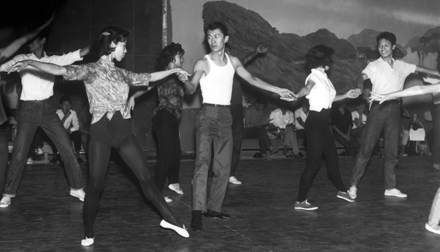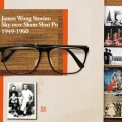
In 1925, the Ningbo businessman Runje Shaw founded Tianyi Film Company in Shanghai. Under his stewardship, Tianyi became a family enterprise run by the four brothers: Runje Shaw, the oldest, was manager and director; the second Runde (1898-1973) was accountant and scriptwriter; the third, Runme, was responsible for distribution; the sixth, Run Run (1907- ), assisted with distribution while still pursuing his studies. In a newspaper interview in 1933, Runje Shaw proudly stated: “[About] a decade ago, Tianyi had a capital of ten thousand dollars; later it rose to 100 thousand, plus 70 to 80 thousand in cash. Putting all our assets together, we are worth around 500 thousand. We are actually turning a profit. Tianyi has one characteristic: we don’t accrue debts. All our materials are procured with cash; this is what you don’t see with other film companies.” (According to information provided by Celestial Pictures, Tianyi had a starting capital of 50 thousand dollars.)
Tianyi’s operating principle was “to place an emphasis on traditional morals and ethics; to promote Chinese culture and avoid westernization.” Its inaugural production New Leaf (1925) was promoted in these terms. This film was followed by Heroine Li Feifei (1925) and Humanities (1926). Many of Tianyi’s productions were based on folklore and classical novels. Some examples are (The Disheartening Story of Liang Shanbo and Zhu Yingtai (1926), Madam White Snake (1926), Flirting Love (1926), and Mulan Joins the Army (1927). Later as sound films emerged, Runje Shaw turned to sourcing movie ideas from the lives of common city people and made such acclaimed productions as The Nightclub Colours (1931) and A Married Woman (1932).
Parallel to the rapid rise of Tianyi in Shanghai, its peers in the industry also organized themselves into competing alliances. By the late 1920s, a number of movie companies (Mingxing Film Company, Greater China Lilium Pictures, U-Lien Film Co., Shanghai Photoplay Co., China Sun Motion Picture Company, China Cinema Co. Ltd) had formed an alliance in order to expand their influence in the industry, and Tianyi’s productions were a major target of their boycott strategy. The episode was known at the time as the “liuhe weichao” (siege by the Alliance of Six).
Under these circumstances, Runje Shaw, while continuing to develop the sound film market, also sent his third brother to Southeast Asia to build up a distribution network.








